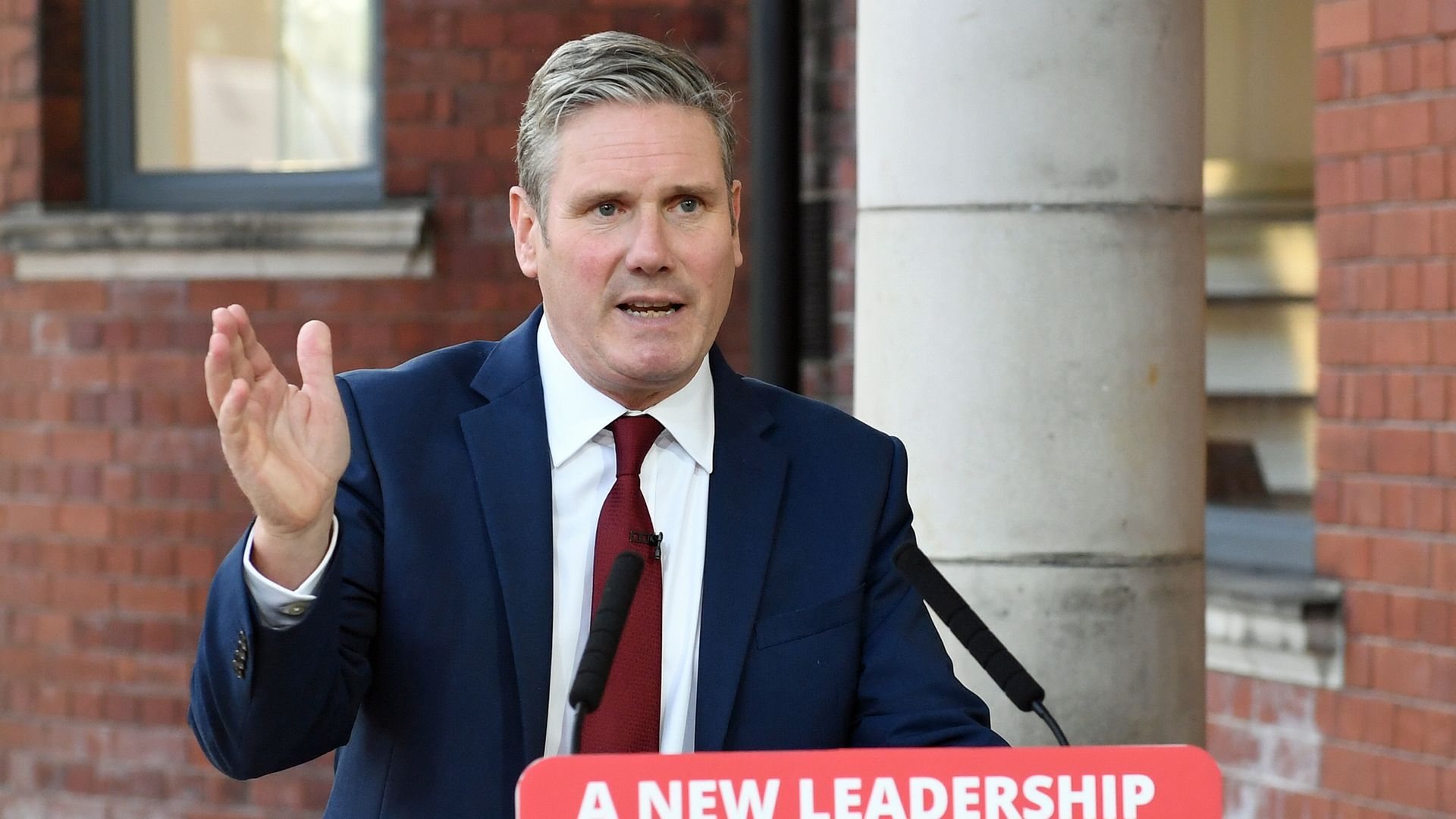
There was a lot to applaud in Keir Starmer’s virtual conference speech and I understand why he says Labour will no longer “bang on about Europe”. Yet on Brexit, as with other aspects of policy, the party must do far more than keep schtum and hope that the Tories continue to make unforced errors all the way to May 2024.
Even the most hopeful view of what lies ahead encompasses disruption to the food chain, long lorry park queues, chaos for tourists (assuming they can still tour), less money for farmers, constitutional strife in Scotland and increasing unrest on the island of Ireland.
All of these are directly attributable to Brexit.
Labour and Starmer will have abdicated authority to speak about these things if they do not continue to point out that many of the arguments that won the referendum were fallacious and to hold to account those who made them.
Martin Devaney
Huddersfield
Brian McGavin writes that Keir Starmer is now “backing Brexit” in “words that could be straight out of Johnson’s mouth” (Issue 211). Labour policy is now to attack the government for any failure to live up to Conservative promises on the nature of Brexit and its outcomes. There is no alternative, as Thatcher put it, given the parliamentary arithmetic.
The question is what about the future? Politicians now avoid answering, but in today’s geopolitical situation Brexit Britain’s position is vulnerable against an assertive China and an unreliable America.
Sterling is no longer a strong international reserve currency, which limits domestic and independent foreign policies. A return to the EU may be an answer, but on condition that it has a European fiscal mechanism, rather than merely national ones, to match the monetary instrument of the ECB.
We will have to wait and see if this is eventually Labour’s vision.
John Halstead
Sheffield
I agree with several correspondents (Letters, TNE #211) and with former Lib Dem MEP Caroline Voaden (“This is not the time to commit to rejoin”, TNE #210) that both Labour and the Lib Dems need to tread carefully with regard to rejoining the EU for the time being. Both parties need to be sensitive to the fact that they will need to win both Remain- and Leave-voting seats to oust the Tories at the next election.
That said, they will win by changing people’s minds, not by pandering to xenophobic nationalism, and they must not think that they can take their Remain-voting supporters for granted.
If they were to take a Rejoin stance now, it would give the pro-Brexit press and politicians ammunition. Once it
becomes clear that Brexit won’t deliver any of the benefits that the Leave campaign promised, and once there is clear evidence of a significant shift in public opinion against Brexit, then it will be time for the opposition parties to pledge to rebuild our relationship with the EU, which will be a necessary first step towards a longer term goal of rejoining.
For the EU to want us back, we would need to have a government that was committed to measures that would prevent another coup d’état like the Brexit debacle from ever happening again, such as electoral reform and a proper codified constitution with robust protocols on referendums and constitutional changes.
It was only by winning a (slender) overall majority in 2015 under our first-past-the-post voting system that the Tories were able to hold a referendum entirely on their own terms – without a minimum threshold and with 16 and 17 year olds, non-UK EU nationals living in the UK and expats who emigrated more than 15 years beforehand being excluded from voting.
Alan Yearsley
Sheffield
Caroline Voaden makes the point that only 2% of voters now view Brexit as the most important issue. They have a pandemic to cope with, of course.
But political parties should lead, and not to follow public opinion. This is the question that they should be asking themselves: “Is Brexit the most important issue the country faces?”
Pandemic aside, if it is, then they should not be distancing themselves from it, whatever the public thinks. We all know the deceit that took us to the point of having to deal and confront this present and imminent danger. The answer to the question is therefore undoubtedly “yes”, whatever public opinion might say.
Marc Folgate
Oundle
• Have your say by emailing theneweuropean@archant.co.uk. Our deadline for letters is Tuesday at 9am for inclusion in Thursday’s edition. Please be concise – letters over five paragraphs long may be edited before printing.









